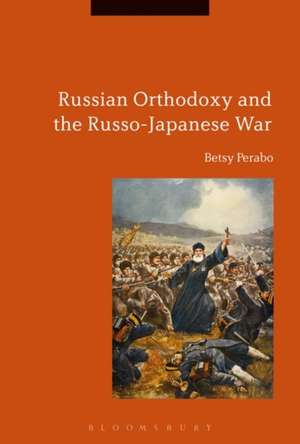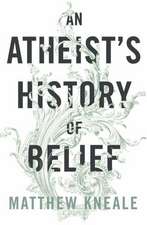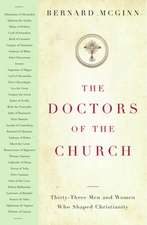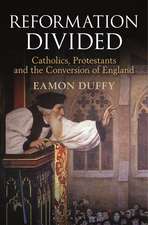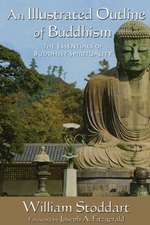Russian Orthodoxy and the Russo-Japanese War
Autor Dr Betsy Peraboen Limba Engleză Hardback – 9 aug 2017
| Toate formatele și edițiile | Preț | Express |
|---|---|---|
| Paperback (1) | 230.43 lei 6-8 săpt. | |
| Bloomsbury Publishing – 20 feb 2019 | 230.43 lei 6-8 săpt. | |
| Hardback (1) | 773.39 lei 3-5 săpt. | |
| Bloomsbury Publishing – 9 aug 2017 | 773.39 lei 3-5 săpt. |
Preț: 773.39 lei
Preț vechi: 1112.70 lei
-30% Nou
Puncte Express: 1160
Preț estimativ în valută:
147.99€ • 158.25$ • 123.39£
147.99€ • 158.25$ • 123.39£
Carte disponibilă
Livrare economică 27 martie-10 aprilie
Preluare comenzi: 021 569.72.76
Specificații
ISBN-13: 9781474253758
ISBN-10: 147425375X
Pagini: 232
Ilustrații: 10 bw illus
Dimensiuni: 156 x 234 mm
Greutate: 0.5 kg
Editura: Bloomsbury Publishing
Colecția Bloomsbury Academic
Locul publicării:London, United Kingdom
ISBN-10: 147425375X
Pagini: 232
Ilustrații: 10 bw illus
Dimensiuni: 156 x 234 mm
Greutate: 0.5 kg
Editura: Bloomsbury Publishing
Colecția Bloomsbury Academic
Locul publicării:London, United Kingdom
Caracteristici
Highlights the experiences of a sympathetic and compelling figure, Nikolai of Japan, whose writings reflect distinctive ideas about the relationship between religion and war
Notă biografică
Betsy Perabo is Professor of Religious Studies at Western Illinois University, USA.
Cuprins
AcknowledgmentsIntroduction1. Christianity, War, and Political Theology2. Russia as a Christian Nation: Orthodoxy and Empire3. The Bountiful Harvest: The Russian Orthodox Mission in Japan4. The Christ-loving Military: War in the Russian Orthodox Tradition5. The Prewar Era: The Army of God and the Army of the Buddha6. The War Begins: Prayers and Patriotism7. Spring 1904: Priests and Battlefields8. Summer 1904: Religion, War, and the Civilized World9. Fall 1904: A Just and Holy War10. 1905: "The Scourging Hand of a Loving Father"ConclusionIndex
Recenzii
"[There] is a lot of rich material here which reveals a diversity of views about this war, which will be of interest to specialists both in Russian Orthodoxy and in Christian ethics about war ."
[In] less than two hundred pages this book sheds light on a mostly unknown war from a mostly unknown perspective. It would be a most useful addition to courses on military history, Russian history, and Christian ethics.
Russian Orthodoxy and the Russo-Japanese War will be welcomed by non-Russian specialists of political theology as it relates to ideas of a "just war," and this is precisely what Perabo set out to do with her book.
[A] valuable read for students and scholars of both history of war and religion and religious ethics, as it provides an historical example of the Russo-Japanese War by looking at the war through the interesting and sympathetic person of Nikolai of Japan.
[A] well-written, accessible, and thought-provoking study that advances scholarship on both the history of this early 20th-century war and the political theology and war ethics of the Russian Orthodox Church . She offers insights into Russian religiosity and politics-from religious freedom and missiology to military martyrdom and Russian exceptionalism-that are just as relevant for understanding today's issues as they were a century ago . I recommend her book to scholars and general readers alike.
In discussions on war, Christian theological ethics gets stuck on debates about criteria for just war, the legitimacy of "holy war" rhetoric, the pacifist option, or the just peacemaking alternative, often at the expense of the lived theology of those caught in war's crossfires. In highlighting the response of Bishop Nikolai of Japan to his own personal catch-22 of war, Betsy Perabo expands the Christian imagination on the relation between holiness and war in a way that is grounded in the tradition of thinking on divine-human communion-theosis.
Perabo's compact study of the Orthodox Church's complicated and often contradictory attitudes to the Russo-Japanese War goes well beyond the conflict itself to provide fascinating insights into the much broader question of Christianity and violence. A fascinating contribution to Russian history, its reflections are no less valid today.
[In] less than two hundred pages this book sheds light on a mostly unknown war from a mostly unknown perspective. It would be a most useful addition to courses on military history, Russian history, and Christian ethics.
Russian Orthodoxy and the Russo-Japanese War will be welcomed by non-Russian specialists of political theology as it relates to ideas of a "just war," and this is precisely what Perabo set out to do with her book.
[A] valuable read for students and scholars of both history of war and religion and religious ethics, as it provides an historical example of the Russo-Japanese War by looking at the war through the interesting and sympathetic person of Nikolai of Japan.
[A] well-written, accessible, and thought-provoking study that advances scholarship on both the history of this early 20th-century war and the political theology and war ethics of the Russian Orthodox Church . She offers insights into Russian religiosity and politics-from religious freedom and missiology to military martyrdom and Russian exceptionalism-that are just as relevant for understanding today's issues as they were a century ago . I recommend her book to scholars and general readers alike.
In discussions on war, Christian theological ethics gets stuck on debates about criteria for just war, the legitimacy of "holy war" rhetoric, the pacifist option, or the just peacemaking alternative, often at the expense of the lived theology of those caught in war's crossfires. In highlighting the response of Bishop Nikolai of Japan to his own personal catch-22 of war, Betsy Perabo expands the Christian imagination on the relation between holiness and war in a way that is grounded in the tradition of thinking on divine-human communion-theosis.
Perabo's compact study of the Orthodox Church's complicated and often contradictory attitudes to the Russo-Japanese War goes well beyond the conflict itself to provide fascinating insights into the much broader question of Christianity and violence. A fascinating contribution to Russian history, its reflections are no less valid today.
